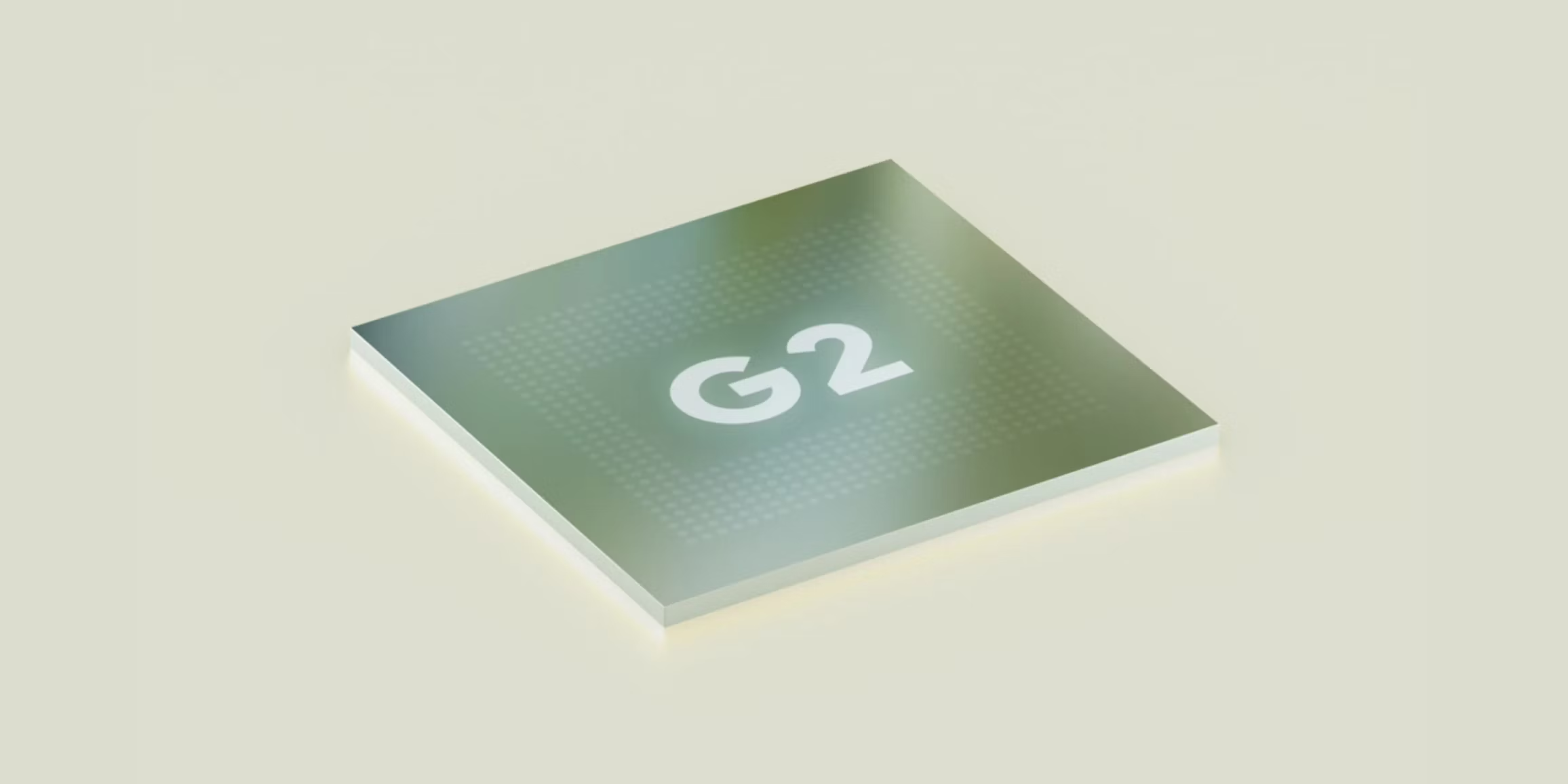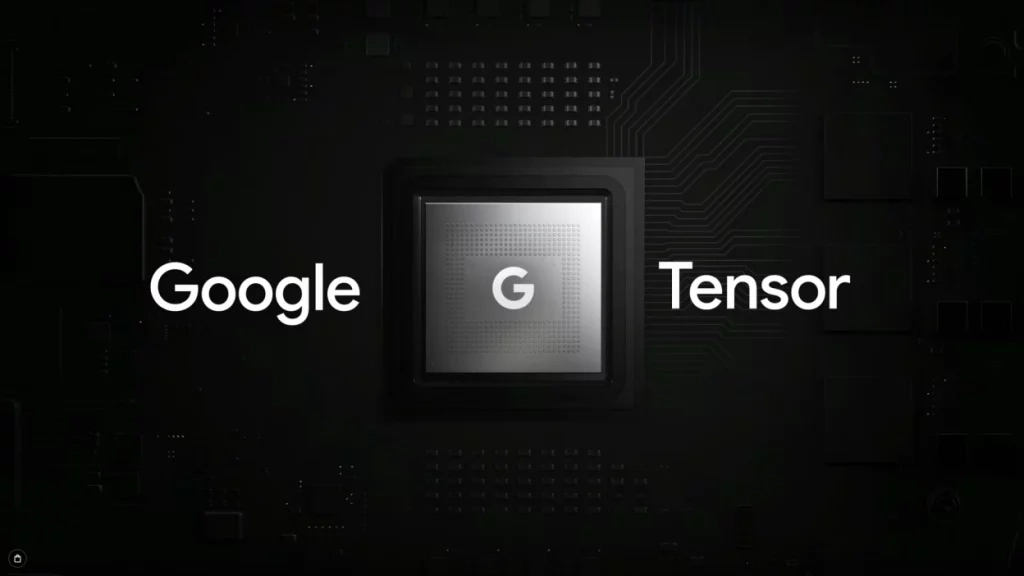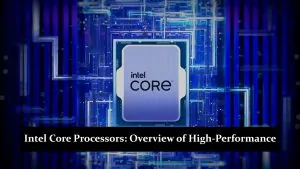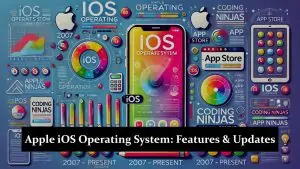The Google Tensor Processor is a custom chip designed by Google for its Pixel smartphones. It focuses on enhancing AI and machine learning performance. Custom processors are crucial for optimised efficiency and unique features in modern mobile phones. Google developed the Tensor Processor to create a seamless hardware-software integration. This results in better performance and personalised user experiences.
Versions of Google Tensor Processor
Google Tensor (1st Generation)
The first-generation Google Tensor Processor debuted with the Pixel 6 series, marking Google’s first step into custom processor development. This chip was designed to enhance AI-driven tasks like photography, voice recognition, and real-time language translation. It improved computational photography, enabling features like Magic Eraser and faster image processing. The Google Tensor processor allowed better integration of Google’s AI software, delivering personalised user experiences. Its launch set the foundation for future advancements in Google’s smartphone hardware.
Google Tensor G2 (2nd Generation)
The Google Tensor G2, introduced with the Pixel 7, built on the strengths of the first-generation chip. It offered enhanced performance, especially in AI and machine learning, with significant improvements in power efficiency. The G2 enabled smoother and faster computational photography, delivering even better camera features such as improved night mode and real-time video enhancements. Its advanced speech recognition capabilities also allowed for faster, more accurate voice commands. The G2 provided a more refined user experience with upgraded performance and features.
Expected Versions
Future versions of the Google Tensor Processor are expected to push the boundaries of AI and machine learning in smartphones. Speculation suggests that upcoming generations will feature even faster processing speeds, better battery efficiency, and enhanced security features. With a focus on improving photography, voice recognition, and AI-driven tasks, the next Tensor chips could offer groundbreaking advancements. Future Pixel devices will likely continue to leverage these processors for unique, user-centered experiences. Enthusiasts anticipate significant developments in AI integration, making Google devices even more powerful and efficient.
The Technology Behind Google Tensor
Architecture and Design of the Processor
The Google Tensor Processor is built on a custom architecture to optimise AI and machine learning tasks. Unlike off-the-shelf processors, Tensor’s architecture integrates Google’s software needs, allowing seamless interaction between hardware and Android OS. It focuses on efficient performance and adaptability, balancing power consumption and high-end processing.
Key Components
The Tensor processor consists of several key components, including the CPU, GPU, AI cores, and a dedicated security chip. The CPU handles general computing tasks, while the GPU is optimised for rendering graphics and enhancing gaming experiences. AI cores are at the heart of Tensor’s machine learning capabilities, driving features like real-time language translation and advanced photography. The security chip, Titan M2, ensures data protection and device integrity.
Integration of Machine Learning and AI Technology
Machine learning and AI are deeply integrated into Tensor’s design, allowing the processor to efficiently handle advanced tasks like natural language processing, computational photography, and speech recognition. This integration enables on-device AI features to work faster without relying heavily on cloud processing. Tensor’s AI technology empowers features such as smarter voice commands, enhanced image editing, and real-time video processing, elevating user experiences across various applications.
Performance of Google Tensor
How it Enhances Performance in Google Pixel Devices
The Google Tensor Processor significantly boosts the performance of Pixel devices by focusing on AI-driven tasks, enhancing user experiences in areas such as photography, voice recognition, and real-time translation. With its custom architecture, Tensor optimises power efficiency while delivering high performance, making Pixel devices faster and smarter. It allows for features like faster image processing, smoother multitasking, and improved battery management, all tailored to the unique software needs of Google’s ecosystem.
Benchmarks and Real-world Performance
The Google Tensor Processor performs competitively in benchmark tests, especially in AI and machine learning tasks. While its raw computing power may not match the processors, its real-world performance shines in optimised Google apps and features. In daily usage, Pixel devices powered by Tensor excel in tasks like computational photography, real-time voice translation, and on-device AI, delivering a seamless, responsive experience that maximises its custom hardware capabilities. Benchmarks and user reviews highlight its efficiency in balancing performance and battery life.
AI and Machine Learning Capabilities
Tensor’s Role in AI-Related Tasks
The Google Tensor Processor is key in improving AI-driven tasks like image processing and speech recognition. Its custom AI cores enable faster, more efficient handling of these processes, providing benefits like sharper photos, advanced image editing features, and more accurate voice commands. However, while its AI capabilities are impressive, Tensor’s performance in raw computing tasks may lag slightly behind competitors, prioritising sheer processing power.
Enhancing Google Assistant and Real-Time Translation
Tensor is designed to enhance Google Assistant’s responsiveness and accuracy, making voice commands quicker and more reliable. Real-time translation also benefits, allowing for on-the-fly language translation without relying heavily on cloud services. This brings convenience, especially for users in multilingual settings. The downside, however, is that these features may still require optimisation, as some users report occasional delays in processing complex tasks.
Use of AI for Battery Efficiency and System Optimizations
Tensor uses AI to manage power consumption intelligently, extending battery life by prioritising tasks and learning user habits. This leads to a more efficient device that adapts to individual usage patterns. Conversely, AI-driven battery management can sometimes over-optimize, resulting in delays or reduced performance in less frequently used apps or tasks. Despite this, the overall impact of AI on battery and system optimisation is largely positive, offering a balance between performance and power efficiency.
Security Features
Integration of the Titan M2 Security Chip
The Google Tensor Processor integrates the Titan M2 security chip, providing a dedicated layer of security for Pixel devices. Titan M2 isolates sensitive data from other system parts, such as passwords, encryption keys, and biometrics. This hardware-level security fortifies the device against attacks, making it more resistant to hacking attempts and unauthorised access.
Privacy Enhancements and Data Protection
Tensor prioritises user privacy by embedding advanced data protection features within the processor. The chip is designed to handle sensitive tasks, such as facial recognition and fingerprint authentication, directly on the device, preventing data from being sent to external servers. This local processing of personal information adds an extra layer of privacy, ensuring user data remains secure.
Secure User Experience Across Google Devices
The combination of Tensor’s processing power and the Titan M2 security chip delivers a secure user experience across Google devices. From protecting user data during transactions to ensuring secure logins, Tensor enhances the overall security ecosystem. This integration gives users confidence that their information is protected, whether using Google Pay, cloud services, or simply unlocking their phone.
Benefits for Google Pixel Devices
- Unique Advantages Tensor Brings to Pixel Smartphones:
- Custom-tailored processor designed to optimise Google’s software and hardware integration.
- Enhanced AI and machine learning capabilities unique to the Pixel ecosystem.
- Improved power efficiency and performance balance.
- Enhanced Photo and Video Capabilities with Computational Photography:
- Superior image processing features like Magic Eraser, Night Sight, and Real Tone.
- Advanced video stabilisation and real-time video enhancements.
- Faster image processing with features like HDR and live photo adjustments.
- Superior User Experience in Everyday Tasks:
- Smoother multitasking and faster app performance.
- Enhanced voice recognition and smart replies through Google Assistant.
- Improved battery life and system efficiency through AI-powered optimisations.
Comparison with Industry Competitors
| Feature | Google Tensor | Apple A-Series | Samsung Exynos |
| AI and Machine Learning | Optimised for AI-driven tasks, especially in photography and speech recognition | Industry-leading AI and machine learning, highly integrated with Apple’s ecosystem | Advanced AI, but generally not as focused on computational photography as Tensor |
| Custom Integration | Built to integrate seamlessly with Google’s software and services | Deep integration with iOS and Apple’s ecosystem, optimised for hardware-software cohesion | Integrated with Samsung’s hardware and software, but not as tightly optimised as Apple’s ecosystem |
| Photography and Video Processing | Computational photography, real-time video enhancement, and features like Magic Eraser | Strong image processing with Deep Fusion and Smart HDR, but lacks some unique features of Tensor | Strong image processing, but generally behind Apple and Google in computational photography |
| Performance and Efficiency | Balanced performance with focus on AI and efficiency | Market-leading raw performance with efficiency | Competitive performance but often less power-efficient compared to Apple and Google |
| Security Features | Integrated Titan M2 security chip for enhanced data protection | Secure Enclave for data protection and privacy | Knox security platform for device and data protection |
| Unique Selling Points | Focus on AI-driven tasks and computational photography tailored for Pixel devices. | Industry-leading performance and seamless integration with Apple’s ecosystem | Good performance in gaming and multitasking, focused on high-end display and graphics optimisation |
Challenges Faced by Google Tensor
- Initial Hurdles in Development and Optimization:
- Developing a custom processor from the ground up posed challenges in balancing performance, power efficiency, and AI capabilities.
- Early software and hardware integration issues affected initial performance optimisation.
- Competing with well-established processors like Apple’s A-series and Qualcomm’s Snapdragon required significant refinement.
- Performance Issues in Earlier Iterations:
- The first-generation Tensor faced some performance lags compared to top-tier competitors in raw computing power.
- Early reports highlighted occasional overheating and battery drain during heavy gaming or extensive multitasking tasks.
- Some users experienced occasional stuttering or slower performance when switching between apps.
- How Google Addressed These Challenges in Newer Versions:
- The Tensor G2 addressed many initial issues by improving power efficiency and overall performance, particularly in AI-driven tasks.
- Google optimised thermal management to reduce overheating issues, resulting in smoother performance under heavy usage.
- Improvements in machine learning cores and better software-hardware integration helped overcome early stuttering and responsiveness concerns.
Conclusion
The Google Tensor Processor has significantly impacted the performance and capabilities of Google Pixel devices, particularly in areas like AI, machine learning, and computational photography. By designing a custom chip, Google has created a more integrated and optimised user experience, setting itself apart from competitors. While it faced initial challenges, Tensor has evolved with each iteration, addressing performance and efficiency issues. Looking forward, Google Tensor is poised to shape the future of mobile processors by pushing the boundaries of AI-driven tasks and enhancing the overall smartphone experience.






